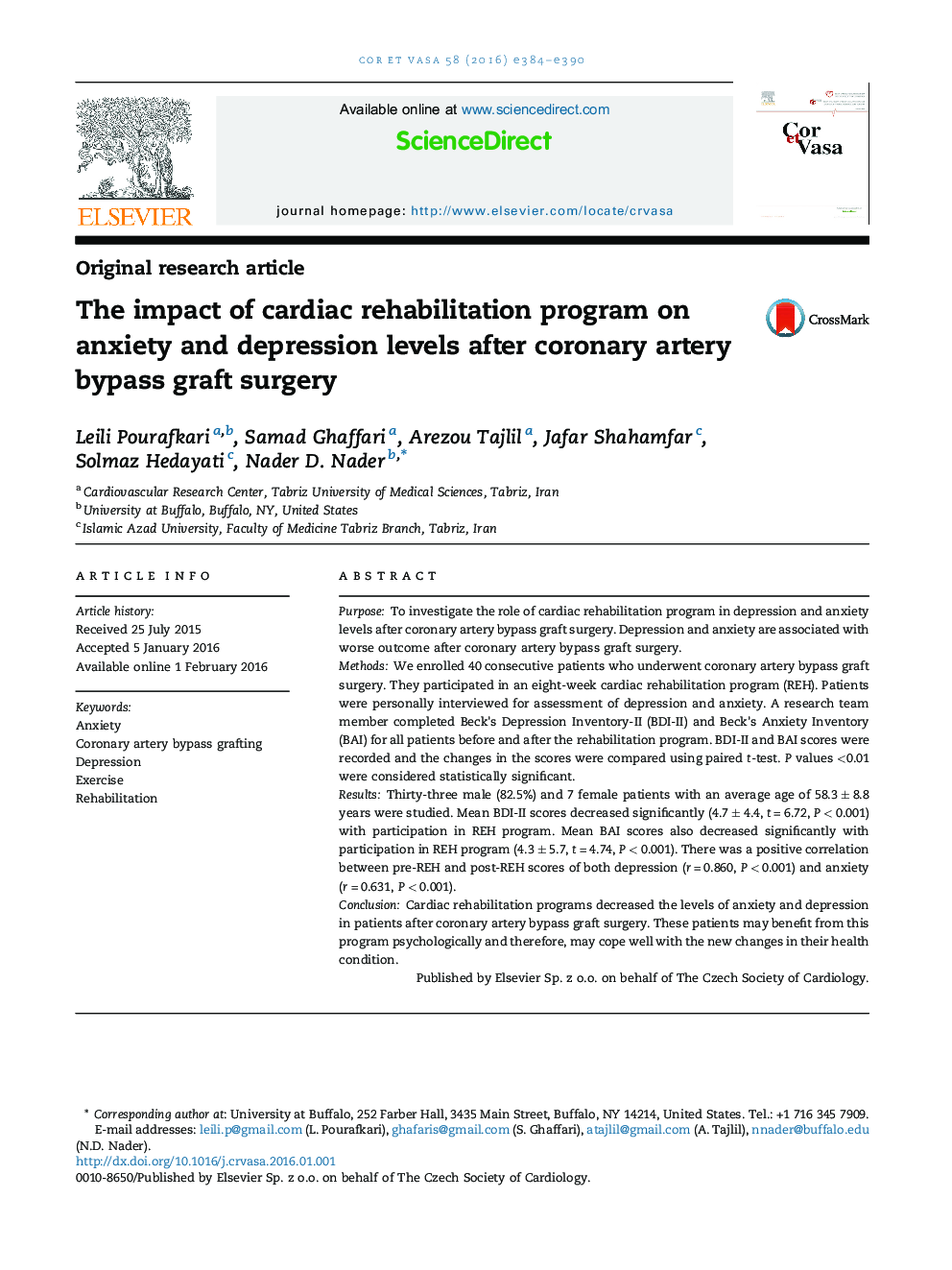| Article ID | Journal | Published Year | Pages | File Type |
|---|---|---|---|---|
| 2732965 | Cor et Vasa | 2016 | 7 Pages |
PurposeTo investigate the role of cardiac rehabilitation program in depression and anxiety levels after coronary artery bypass graft surgery. Depression and anxiety are associated with worse outcome after coronary artery bypass graft surgery.MethodsWe enrolled 40 consecutive patients who underwent coronary artery bypass graft surgery. They participated in an eight-week cardiac rehabilitation program (REH). Patients were personally interviewed for assessment of depression and anxiety. A research team member completed Beck's Depression Inventory-II (BDI-II) and Beck's Anxiety Inventory (BAI) for all patients before and after the rehabilitation program. BDI-II and BAI scores were recorded and the changes in the scores were compared using paired t-test. P values <0.01 were considered statistically significant.ResultsThirty-three male (82.5%) and 7 female patients with an average age of 58.3 ± 8.8 years were studied. Mean BDI-II scores decreased significantly (4.7 ± 4.4, t = 6.72, P < 0.001) with participation in REH program. Mean BAI scores also decreased significantly with participation in REH program (4.3 ± 5.7, t = 4.74, P < 0.001). There was a positive correlation between pre-REH and post-REH scores of both depression (r = 0.860, P < 0.001) and anxiety (r = 0.631, P < 0.001).ConclusionCardiac rehabilitation programs decreased the levels of anxiety and depression in patients after coronary artery bypass graft surgery. These patients may benefit from this program psychologically and therefore, may cope well with the new changes in their health condition.
